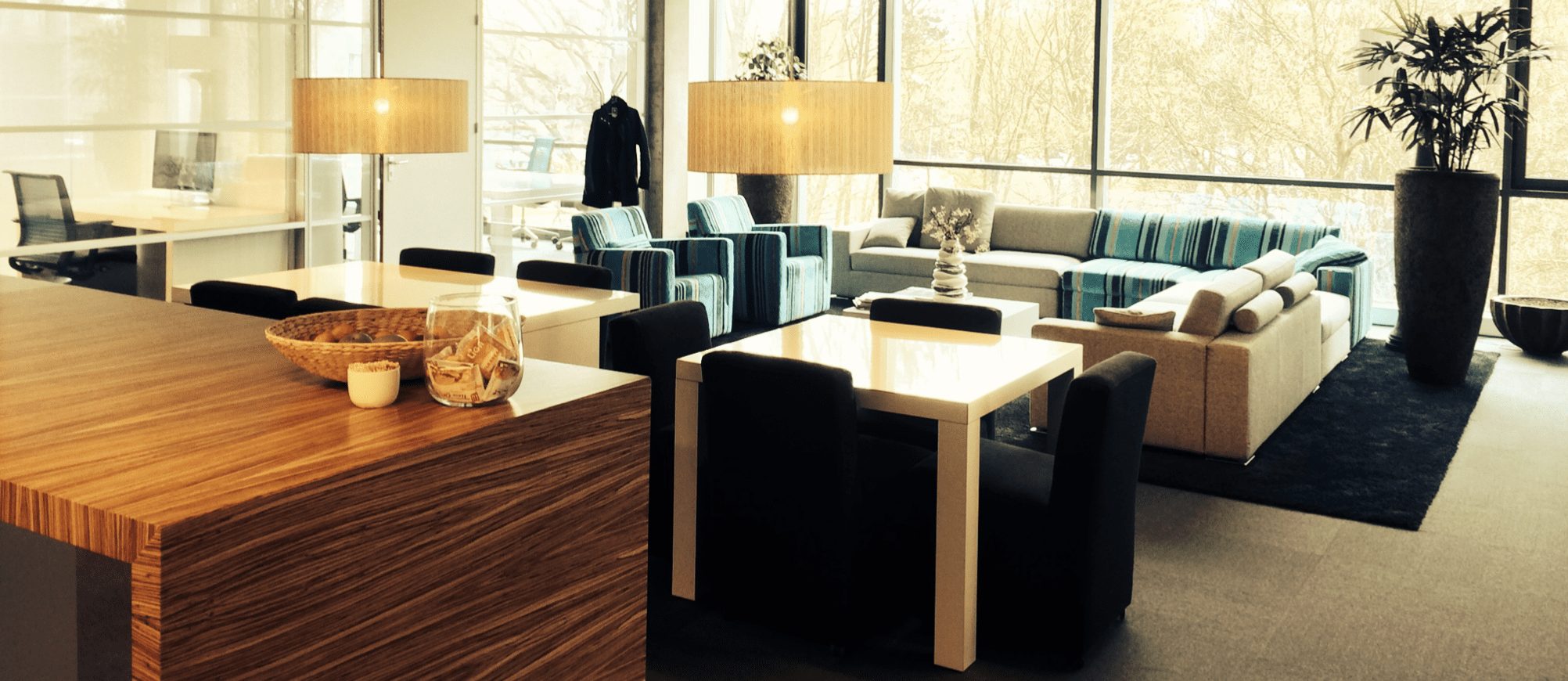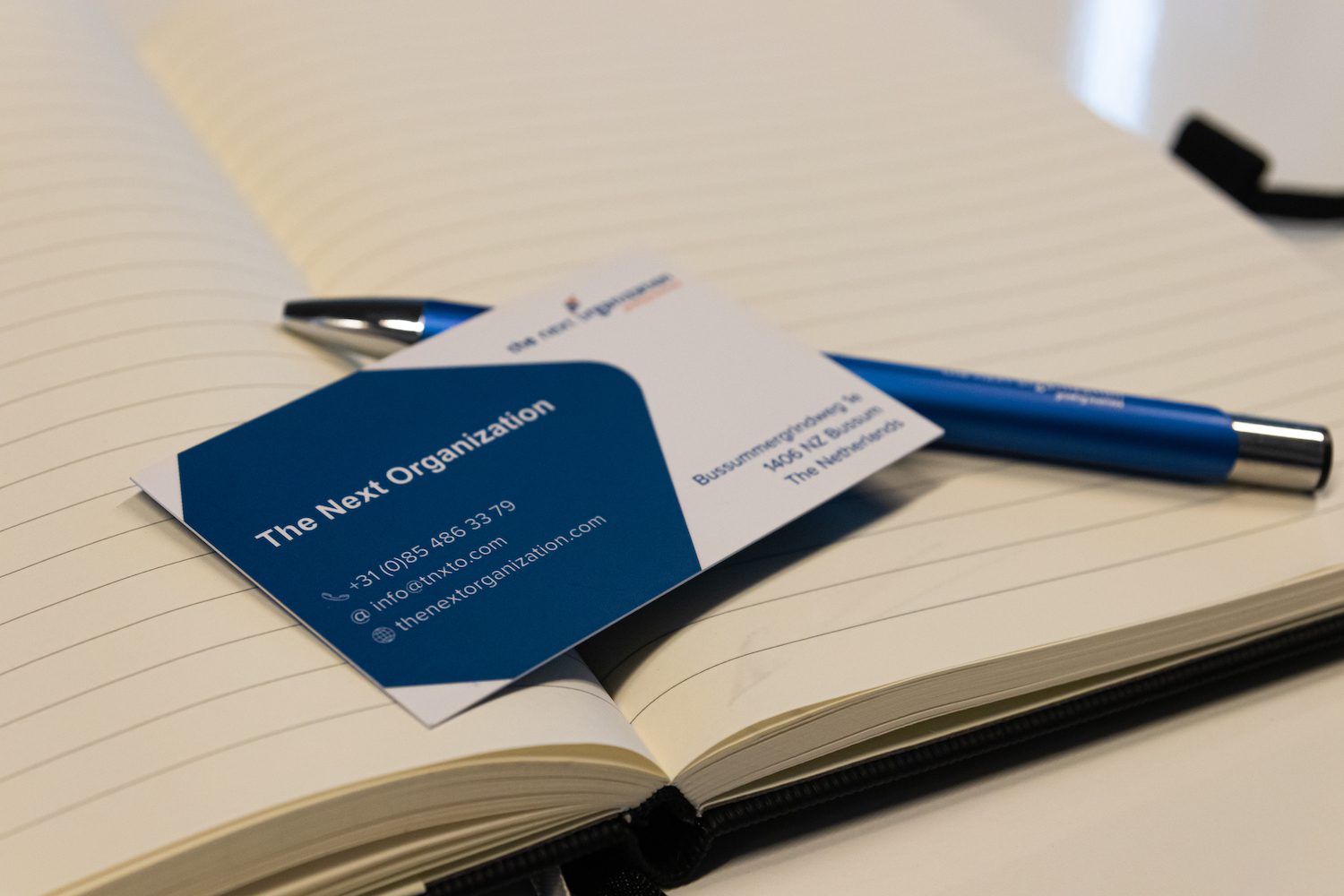Martin Schuit started five years ago as a graduate student at The Next Organization. In the past period, he has advanced to Associate Consultant. In conversation with Consultancy.com He tells us what it is like to work at The Next Organization and explains how he continues to develop, for example through his MBA programme at the Rotterdam School of Management.
You have been working at The Next Organization for more than five years now. What makes the agency such an interesting workplace for you?
The Next Organization is an environment where, from day one, I have had the freedom, responsibility and, above all, the confidence to develop myself. I have never felt like an employee here, but more like an entrepreneur. The personal and informal atmosphere at our office in Bussum, combined with the group of motivated colleagues who want the best for our clients, has made me feel like a real entrepreneur. The Next Organization the perfect workplace for me.
What types of projects have you been working on in recent years?
In recent years, I have had the opportunity to work for a large number of clients in various sectors. From the automotive industry to the insurance industry and from the truck industry to the navy. A common thread running through the projects I have been privileged to contribute to is the improvement and innovation of the customer experience. This is based on different customer questions or challenges, sometimes fed by disappointing customer satisfaction, sometimes fed by ambitious sales targets. In the various projects, this has allowed me to work with all the different departments within these companies and at different levels to achieve a new way of working together.
You specialise in innovation in customer experience, a field that has been undergoing rapid change in recent years as consumers raise their expectations and increasingly embrace new technologies. What do you think are the most important developments in your field?
As you indicate in the question, technology is going to play an increasingly important role in changing customer behaviour and the expectations of this customer. Technology in both the purchasing and the service process takes an increasingly central position in the contact with the end customer. Because of this, you see that our customers' need for the right technological solutions (think of ERP or CRM solutions) is increasing. Although we are not a supplier of these types of systems, we do help companies to map out their business processes in preparation for selecting a suitable supplier of such a system. After all, we believe that in order to buy the right system, you first need a clear picture of what you need. This is a question we help our customers with more and more often.
Consultants are often criticised for not achieving tangible results. Can you name some tangible results that you have seen implemented in your projects and which you are most proud of?
I certainly can. Because at The Next Organisation, we are often allowed to guide not only the strategy but also the first phase of the implementation, we can ensure that these tangible results are actually achieved. As I mentioned earlier, we have been asked to improve customer satisfaction, for example. By means of a number of workshops in which the customer journey of the end customer was examined and the needs of this customer were mapped out, we arrived at a large number of improvement initiatives for this specific customer. These initiatives were subsequently implemented in phases, which led to a situation in which, one year after a red (read: bad) score, customer satisfaction was in the grey (read: neutral) category and another year after that in the green (read: very good) category.
Another recent example is the supervision of the development of a CRM solution within the naval industry. For this project, after drawing up a clear CRM vision, we looked at both the current and desired processes within the organisation, and from there we looked at the functional requirements for a CRM solution. These requirements were then used as a clear "request for proposal" to a number of potential suppliers. Thanks to good preparations, the selected supplier has now delivered the right solution within scope, budget and time.
"At The Next Organization, as a junior you get the opportunity to go directly to the customer. This is because we believe that is where it happens." - Martin Schuit, TNXTO
From your graduation internship you have progressed to Associate Consultant and have gained more responsibilities, including marketing, acquisition and project & account management. These are all responsibilities that at other agencies usually come much later in the job description. How has this contributed to your development?
This opportunity has contributed greatly to the steep learning curve I have been able to go through. At The Next Organization, as a junior you immediately get the opportunity to go to the customer. This because we believe that that is where it happens.
This started already during my graduation, with the result that I started with one day of work and four days of graduation per week, but soon moved to a ratio of about three to four days of work and graduation. When I started working full-time after graduating, I was given the opportunity to take over the project at my first major customer after about six months, and after proper consultation. This was because the project leader at the time was moving on to another project. With the right guidance, this worked out very well and I grew into the role of project leader on several projects. The same applied to my role as Associate Consultant.
After about two years of working at The Next Organization, I noticed that, apart from my work for clients, I wanted to do more for the agency. Because I was 25 to 26 at that time, the role of Associate Consultant was still a bit too early. In consultation, we decided to create the role of Junior Associate Consultant in order to develop me further towards the role of Associate. After a trajectory of two years, I made the step to Associate Consultant last January. I now fulfill a role within our management team as responsible for marketing and communication. During my time at The Next Organization, I have been given many opportunities and have seized them with both hands, which is why I am now standing where I am at 28 years of age.
During your time at The Next Organisation, the company has roughly tripled in size. What challenges and opportunities has this growth brought?
When I entered The Next Organisation as a graduate student, I was the sixth employee of our company, where we now work with more than twenty consultants in Bussum, London and Accra (Ghana). This brings, as you rightly say, challenges and opportunities. The challenge lies mainly in the fact that you are no longer automatically involved and informed in all the projects that The Next Organization is working on. This means that we have had to pay more attention to sharing progress on projects.
"Because my MBA is not only an investment in myself but also in the company, it is handled flexibly and understandingly."
In addition, the size of the organisation now requires more formalisation and the writing down of certain things, whereas previously this was all in people's heads and we knew what someone meant with half a word. The challenge, which I think we have succeeded in doing, was mainly to record certain processes and at the same time to retain the "flat" organisation in which people have the space to determine their own growth.
Opportunities lie in being able to run larger projects for our customers and also the international aspect, which has become more important due to our growth. Because of the larger organisation, we now also have the opportunity to set up teams to take on specific internal projects, such as the development of our online magazine The Next Quarterly.
Next to your work as a consultant at The Next Organization, you are currently following an MBA-program at Rotterdam School of Management. How does The Next Organization support you in this double role?
Indeed, in January I started an Executive MBA programme at Rotterdam School of Management. During the last year, I noticed that, apart from the experience I gained on projects for clients and within our company, I would like to do another course. After I mentioned this to Elrik and Steije (both partners of The Next Organisation) they came up with the suggestion to follow an MBA programme. After a study trip to Cape Town, I have now completed my first semester and I am very happy that I took this step.
Despite the fact that I have a more than fulltime job at The Next Organization and still have about fifteen to twenty hours of study per week, I get more energy from it than it costs me. At The Next Organization, besides the financial aspect, I am fortunate to have the freedom to arrange my own time and can therefore switch according to the priorities of the moment. Also, on the Fridays when I have lectures (every other week on Friday evening and Saturday in Rotterdam) I can leave the company earlier. Because my MBA is not only an investment in myself but also in the company, this is handled with flexibility and understanding.




